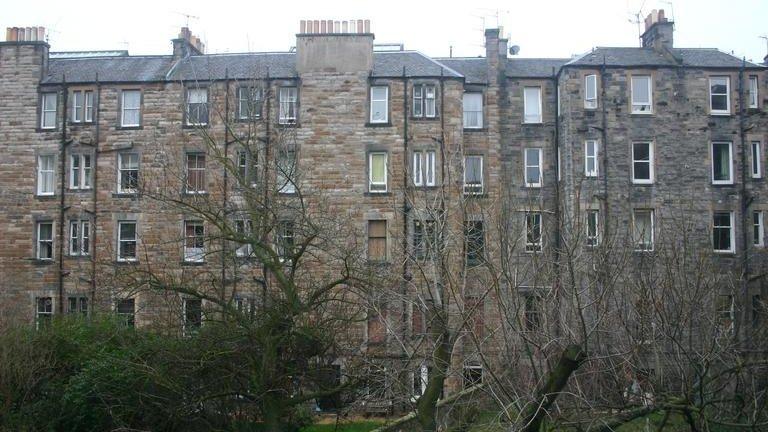'Garden cities' competition finalists announced
- Published
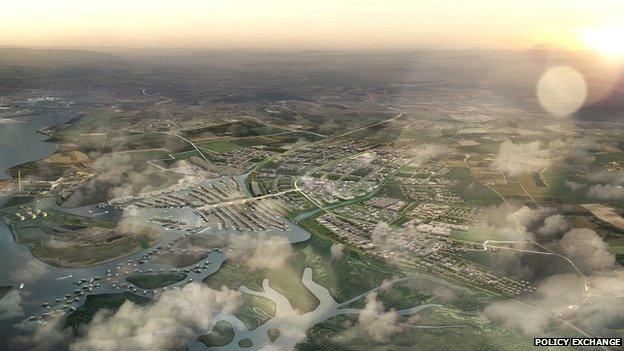
Housing charity Shelter proposed building a new city between the Thames and Medway rivers
Five finalists in a competition to design a new garden city have been announced.
The eventual winner of the Wolfson Economics Prize will receive £250,000.
Of the shortlisted contenders, only housing charity Shelter specified a site for its development - on Kent's Hoo peninsula in south-east England.
Lord Simon Wolfson - the man behind the prize and boss of retail chain Next - said garden cities could create jobs, homes and promote economic growth.
Garden cities are seen by some as a solution to the UK's housing shortage.
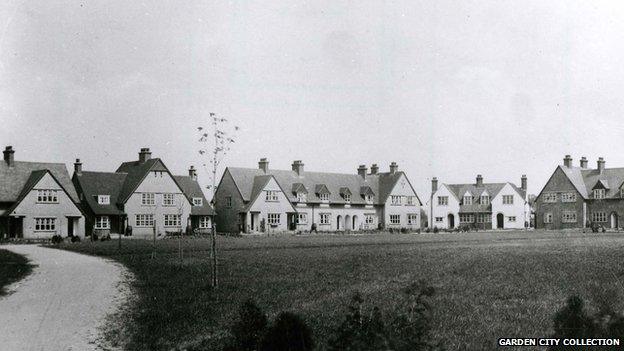
Letchworth Garden City was designed in the late 19th Century as a solution to urban squalor and poverty
Some 27 new UK towns were built after World War Two, including Stevenage, Harlow, Milton Keynes, Corby, Cwmbran, Newton Aycliffe, Peterlee and Cumbernauld.
So-called "garden cities" were designed with large amounts of green space as a solution to an accommodation shortage caused by bomb damage, stagnation in the construction industry, returning service personnel and a baby boom.
'Crack housing crisis'
There have been calls for another generation of new towns, with Deputy Prime Minister Nick Clegg recently pledging up to three would be built - on as yet unidentified sites.
The number of households in England is expected to grow by about 221,000 every year this decade.
But the number of homes being built is lagging behind - with the construction of 112,630 completed between April 2013 and March this year.
The scale will be similar to existing Garden Cities like Letchworth and Welwyn
Lord Wolfson said the entries to his competition, external proved garden cities could "crack Britain's housing crisis".
"They can also deliver better homes, gardens, infrastructure, schools, hospitals, public spaces, jobs and economic growth," he added.
"They are a real chance to improve quality of life for hundreds of thousands of people."
The Shelter proposal is for a settlement of up to 48,000 people at Stoke Harbour on the peninsula between the Thames and Medway rivers.
But the BBC's local government correspondent Mike Sergeant said that within hours of the shortlist being announced local objections had been raised.

Analysis
By Mike Sergeant
"A muddy, tidal estuary with poor transport links, a huge ugly power station dominating views, and few local facilities or job opportunities."
That won't be on the glossy brochure for homes in Hoo Garden City - if it ever gets built.
The housing charity Shelter's plan is for thousands of neatly designed new homes built around a picturesque harbour, with a new train line connecting to the high-speed link into London.
Within hours of the shortlist for the Wolfson Prize being announced, local objections had begun.
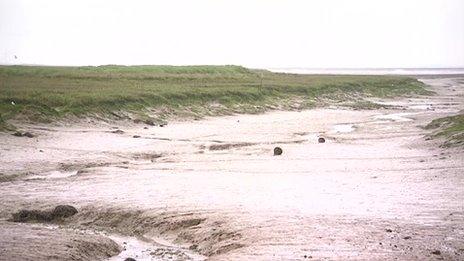
One man said there was "no chance" of housing development on what is now industrial land. Rural campaigners have highlighted potential problems of flooding and safety issues with the nearby gas docks.
And if new garden cities are controversial here - in this slightly neglected corner of Kent - just imagine the resistance in more affluent, leafy and better connected parts of England.
Politicians on all sides seem to have embraced "garden cities" as the gentle, unthreatening and acceptable face of development.
But will governments ever have the stomach to force them on local communities who aren't totally convinced of the benefits?

The other four shortlisted entries are from: design consultancy Barton Willmore; Chris Blundell; David Rudlin, who suggested expanding an existing garden city to 400,000 people; and planners Wei Yang & Partners, which also mooted the Thames estuary as a potential site.
A winner of what organisers Policy Exchange say is the second biggest economics prize in the world is due to be announced in September.
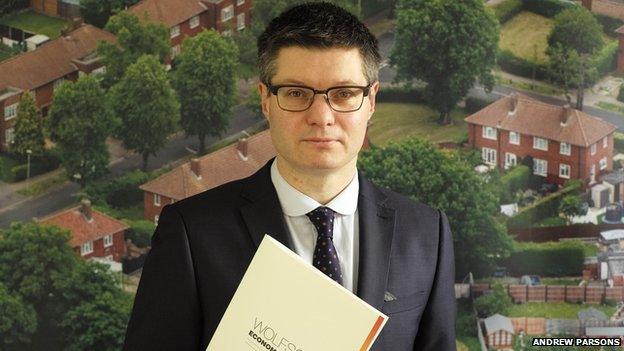
Lord Wolfson - who has run Next since 2001 - is funding the prize
The think tank says it hopes the successful recipient of the £250,000 funding from the Wolfson Foundation will then take their proposal to government officials.
"The purpose of this isn't just to come up with a set of abstract ideas," said Policy Exchange's Nick Faith.
"It's to be able to take a fully-costed plan to deliver to officials and policy makers, whoever's in government."
Labour is committed to building 200,000 homes a year, promising "a new generation of new towns and garden cities".
Chairman of the judges Trevor Osborne said the panel "faced a very difficult choice", adding: "We've selected just five finalists from a ferociously competitive field."
A £1,000 prize was awarded to four further entries which scored highly, the organisers said.
- Published14 April 2014

- Published14 November 2013

- Published11 February 2014
